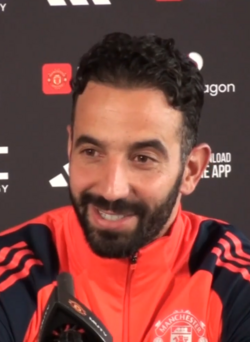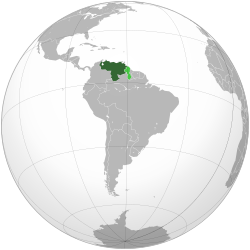Wednesday, September 10, 2025

Image: Andrea Leong.
Wikinews conducted an interview with Fusion Party President Mr. Drew Wolfendale over the course of several email exchanges.
According to the Fusion Party’s official website, the party was founded in 2021 through the merger of six former federal parties: the Science Party, Pirate Party, Secular Party, Vote Planet, and Climate Change Justice Party. The website states that the party bases its decisions on a “Value Framework,” which it describes as a hierarchy of six core values, including personal liberty, progress, and ecological harmony.
The majority of the following interview was conducted before the federal election. Since then, Fusion Party candidate Drew Wolfendale was not elected to the Senate.
This article presents Mr. Wolfendale’s views in his own words. Statements attributed to him reflect his opinions and proposals and are not independently verified unless otherwise noted. Verification notes for some statements are available on the article’s collaboration page.
Interview text
[edit]
Reporters: Hi Mr. Wolfendale, please briefly introduce yourself.
Drew Wolfendale: I’m Drew Wolfendale, and I’m running for the Senate with the Fusion Party Australia Coalition because I would like to see us move towards a better form of representational government, as a necessary step towards building a government capable of handling the challenges of the future.
I am an Adelaide local from the northern suburbs, born and raised. I completed a Bachelor of Engineering in Mining at Adelaide University, and later pursued postgraduate studies in finance and economics at Adelaide University and at Göteborg Handelshögskolan (The Gothenburg School of Economics) in Sweden.
Other than my more recent role as President of the party, I have worked principally with the railway industry with a focus on problem identification and solution building within complex systems, within the strategic asset management planning field where I continue to work and ultimately in a data systems integration advisory role. I am also a Director at Humanists Australia.
Reporters: When did you join the party? What motivated your decision?
Drew Wolfendale: I joined the precursor Science Party in 2017 for its focus on evidence-based policy, after previously organising with some friends to develop evidence-based policy.
Reporters: What is your contribution to the party?
Drew Wolfendale: I led the development of the value framework which ultimately underpinned the formation of Fusion.
- Note: The Fusion Party’s own explanation of the Value Framework makes no reference, explicit or implicit, to its role in the party’s formation. It describes the framework as a policy-development tool rather than a founding principle.
Reporters: Were (you/members of your party) successfully elected previously?
Drew Wolfendale: No
Reporters: What are your key points for the upcoming election? What would you aim to achieve?(Even if your party is not participating in this election, we would still welcome your perspective.)
Drew Wolfendale: Personally my key points are Tax Reform and Electoral Reform.
Reporters: How would you suggest an average citizen to improve the performance of Australia in economical, scientific or political areas?
Drew Wolfendale: Recognise that serious change is needed to maintain our current high standard of living – and look for people who are tackling it as a serious problem, not selling “easy” solutions.
Reporters: What is your position on climate change?
Drew Wolfendale: I fully endorse the goals of the Climate Rescue Accord.
Reporters: What is your position on environmental pollution?
Drew Wolfendale: We need to manage it, and we need to shift our focus to regeneration and restoration rather than prevention.
Reporters: What do you think about public vs private schools?
Drew Wolfendale: Private schools play an important role in Australian society for a range of historical reasons, and changing that is a battle with more harm than good – but I firmly believe that the funding arrangements are unfairly favourable to private schools, and the government funding should be focused on public schools far more than it currently is.
Reporters: What can an average citizen do to improve the environment in regards to climate change or environmental pollution?
Drew Wolfendale: Vote Better.
Reporters: What is your position about energy transition? Do you support such new forms of energy sources as nuclear power plants, solar or wind farms, hydro? What is your position on development of energy storage technologies?
Drew Wolfendale: I support all forms of low-carbon energy, including nuclear, though I don’t see there being a large need for it in Australia (targeting perhaps 5% of the national energy supply would be more than reasonable).
I am excited by the current progress being made on clean fusion energy, which would make most other forms of energy obsolete.
For energy storage, I think it’s vitally important to have distributed energy storage on our grid, and I would like to see substantial government investment in the much more sustainable sodium-ion battery technology that’s beginning to take off.
Reporters: How would you suggest supporting small businesses?
Drew Wolfendale: Small businesses benefit best in a society that minimises barriers to both economic involvement, and political representation. (I discuss the Mechanics of Prosperity on my site.)
The best support for small business is a healthy society, a competitive market, and a tax regime that discourages monopolisation.
Reporters: How would you suggest solving the issue with affordability of housing?
Drew Wolfendale: We must restructure our housing market to prevent speculation. The focus of the housing market should be for people to live in them. Profiteering off housing without directly improving the quality or supply of housing should be made impossible.
Reporters: What is your position about the ‘Made in Australia’ campaign and/or tariffs?
Drew Wolfendale: The Made in Australia campaign is an excellent campaign for providing consumers with informed choices. The potential harms and benefits of tariffs need to be considered far more seriously than they have been in recent geopolitical events.
Reporters: Did your member parties have extensive collaboration before their merger?
Drew Wolfendale: Extensive contact, but not extensive collaboration.
Reporters: Does the Australian Pirate Party, a member of your party, maintain ties or collaborations with the Pirate Party International?
Drew Wolfendale: Yes.
Reporters: Does your party cooperate with any other parties, such as the Animal Justice Party (which supports animal welfare) or Federal ICAC Now (which advocates for anti-corruption institutions)?
Drew Wolfendale: Movement- and coalition-building are very important to us, so we endeavor to cooperate with aligned parties wherever possible. This viewpoint appears to be quite unique to us, though, so who we cooperate with, and how successfully, varies wildly both by party, location, and time.
Reporters: Anything else you would like to add?
Drew Wolfendale: Australia has had it too good for too long, and has relied for too long on our ahead-of-their-time political institutions as a defence to the troubles of other countries.
Our institutions are no longer up to the task, and we will learn this the hard way if we don’t take serious consideration of the challenges before us.
Wolfendale concluded the email exchange by noting that additional questions may be addressed on the party’s website when they have the capacity to do so.
External links
[edit]
- The Wolf of Auspol, Wolfendale’s personal blog
Sources
[edit]
- Our Values – The Framework — Fusion Party (Australia), September 2, 2025 (date of access)
- Our Party — Fusion Party (Australia), September 2, 2025 (date of access)







